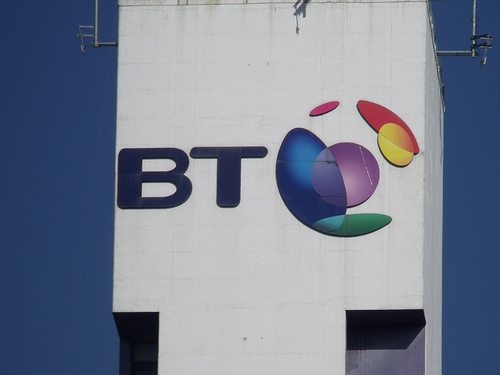

Economy
BT unveils new initiative to help reduce carbon footprint
Telecommunications giant BT has launched a new initiative that it says will help customers reduce their carbon footprint by “at least three times” its own emissions by 2020.
Launching the Net Good framework at the headquarters of the Royal Society for the encouragement of Arts, Manufactures and Commerce (RSA) in London, the firm said it would go some way to “help society live within the constraints of our planet’s resources”.
Through its updated methodology, BT will measure its carbon footprint right across its supply chain and compare it against the potential to reduce this impact through its range of products and services. In short, it is “using smart technologies to reduce emissions”.
For example, using audio conferencing technology as opposed to physically travelling to meetings would help customers reduce their footprint.
Chief executive Ian Livingston said, “Proud as we are of our own record, doing less environmental damage is no longer enough. We are moving beyond simply making our own business more resource-efficient to using products and services to help our customers do the same.
“Communication technology has a significant role in helping create a better future by enabling businesses and individuals to use resources efficiently.”
A big factor in BT’s reasons for working on the Net Good framework is climate change, which it said is already affecting its operations. Network faults caused by snow and customer service problems from extreme weather are just two of the warning signs that highlighted a need to change.
As the largest buyer of energy in the UK, it says it has an obligation to reduce its dependency on the country’s energy supply. But, within this obligation is an opportunity to help customers.
The telecoms giant, which is working on Net Good with the Carbon Trust and the Climate Group, recently signed a deal with energy supplier Npower to source 100% of its UK energy from renewable sources. It adds that the ICT sector could cut global greenhouse gas emissions by 16.5% by 2020 – most at no extra cost.
BT also recently topped a carbon ranking developed by thinktank the Environmental Investment Organisation (EIO), which measured greenhouse gas emissions relative to the turnover of listed firms. Meanwhile, its pension scheme was shortlisted for an award for responsible investment reporting.
Michael Solomon, director of Responsible 100, wrote an article about corporate social responsibility for Blue & Green Tomorrow in April, in which he outlined the required transition for large firms, from their negative impact outweighing their positive, to their positive impact outweighing their negative – in effect, a ‘net good’.
Further reading:
BT tops inaugural UK carbon ranking index
The business case for sustainability: an exceptional Forum for the Future event
Survey shows UK firms are getting complacent with supplier risks






























